According to Kenya County Climate Risk Profile Series, agriculture contributes almost half of household incomes in Kisumu County.
The report indicates that in 2012, major food crops produced in the County were; maize, sorghum, and beans, which generated approximately Sh10 billion.
Cash crops such as sugarcane, rice, and cotton is reported to have earned another Sh10.5 billion in the same period.
However, the report point out that small-scale production represents 90 per cent of total agricultural production in the county.
With the impacts of Climate Change affecting agricultural production, many farmers are resorting to modern farm inputs which pose more threat to the production.
Chemical fertilizer use
According to experts, chemical fertiliser overuse can contribute to soil acidification and soil crust, thereby reducing the content of organic matter, humus content, beneficial species, stunting plant growth, altering the pH of the soil, growing pests, and even leading to the release of greenhouse gases.
Alliance for a Green Revolution in Africa (AGRA) 2018 report titled Assessment of Fertilizer Distribution Systems and Opportunities for Developing Fertilizer Blends Kenya, points out that post devolution, the agricultural extension services have weakened.
This, the report notes has led to limited capacity within the public sector concerning multi-nutrient fertilizers and manufacturing processes.
This has led to misuse of fertilizers, hence affecting soil quality in many parts of the country.
Several interventions have however been brought forward in a bid to promote organic farming, to help restore the soil quality.
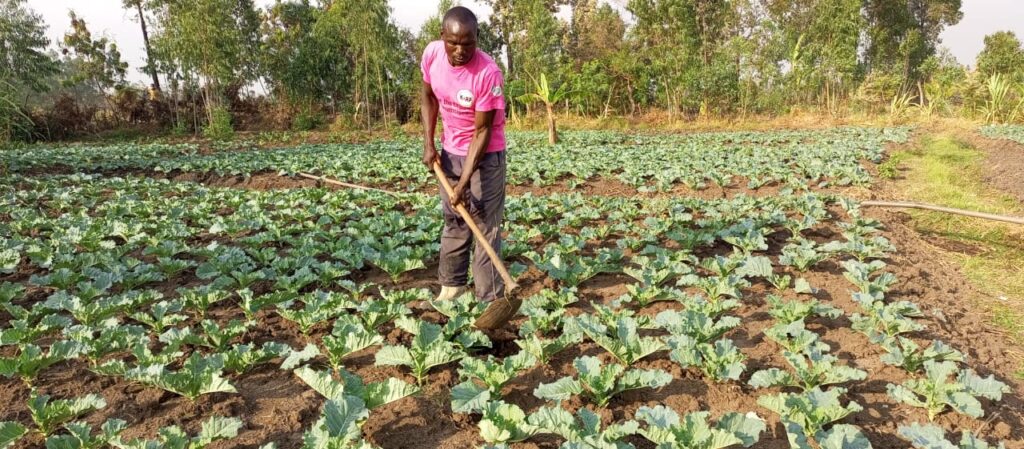
In Kisumu, community groups are promoting use of earthworms to decompose kitchen and market wastes, which they then use in their farms as manure.
Jennifer Adoyo has been a vegetable farmer at Nam Thoi in Kisumu East since 2017.
Previously, she used compost method of producing organic manure, in addition to chemical fertilizers.
Adopting vermiculture
However, three years ago, she was introduced to vermiculture, the use of red ant (earthworms) which she says has transformed her farming after attending a farmers’ forum organized by Biovision African Trust, an organization promoting healthy farming.
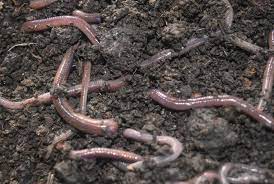
According to Ms Adoyo, she collects kitchen and market wastes such as cabbage leaves, rotten tomatoes, bananas, among others, and put three quarter full in a container with small holes at the bottom.
The container is then hanged somewhere, and red ants introduced in it.
Water is then added into the container, every morning and evening.
The water being collected at the bottom is very rich in nutrients as it seeps through the decomposing waste, washing away nutrients and dropping in the container
Jennifer Adoyo
Another container is placed under the one carrying the waste, to collect any water seeping through the waste.
The seeping water is then collected, and used as manure in the farm.
“The water being collected at the bottom is very rich in nutrients as it seeps through the decomposing waste, washing away nutrients and dropping in the container,” she says.
The water introduced into the container carrying the waste also helps to facilitate decomposition, as the worms can easily move inside the waste.
Once the waste is fully decomposed, within three to six weeks, it is sieved to retrieve the worms, and the rest of the content is again introduced in the farm as manure.
“The content is richer in nutrients as it contains both the nutrients from the wastes, and the droppings from the worms,” she says.
Need for mechanization
The worms are said to be able to eat food worth four times their weight, hence the speedy decomposition of the wastes.
Adoyo however notes that this method of producing organic manure requires proper mechanization to produce manure for mass production.
“I have two acres of land, which is fragmented to ensure staggered production. I can manage to get enough manure from this method,” she said.
Another challenge she notes is that market wastes have been on high demand from people who feed their livestock, hence they have to buy them.
“Our aim is to protect the soil and the important living organism in the soil, us as farmers, and the consumers of our products,” she said.
“For our crops to reproduce, we need insects to enhance pollination, so when we kill them through the hazardous chemicals then we are not doing sustainable business.”
“Apart from seeds, we needed to buy fertilizers, pesticides, and also hire more labour,” she said.
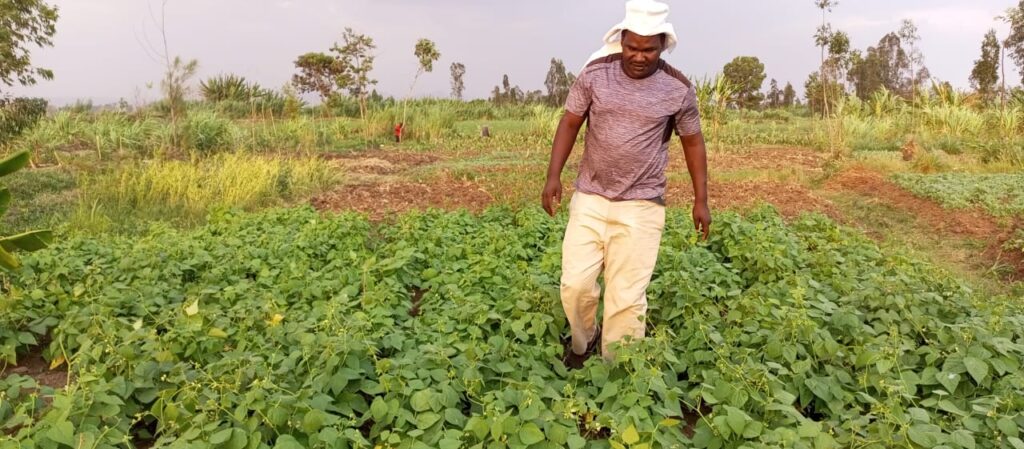
Improved yields
Before the adoption of this method of farming, Adoyo says she could spend between Sh20, 000 to Sh30, 000 in one acre of farm.
Today, she spends between Sh10, 000 and Sh20, 000 per season on the same piece of land, much of the expense going to seeds and labour.
“The training and interaction with both government and non-governmental organizations supporting safe agriculture is what exposed us into attitude change, and we are not regretting,” she added.
Austine Otieno is another farmer in the area, and has been using this form of organic farming for three years.
Otieno says his production has improved since he adopted this manure.
I do mostly African leafy vegetables, kales, and tomatoes. When you use the synthetic chemicals such as fertilizers and pesticides, you have to take some time for the chemicals to be broken down before harvesting the crops. But with the organic manure and inputs, we harvest any time,I do mostly African leafy vegetables, kales, and tomatoes. When you use the synthetic chemicals such as fertilizers and pesticides, you have to take some time for the chemicals to be broken down before harvesting the crops. But with the organic manure and inputs, we harvest any time,
Austine Otieno
“I have been a farmer for over ten years, and I previously used the synthetic fertilizers,” he said.
He adds: “Initially, the production was good with the synthetic fertilizer, but it soon dropped, despite increasing the quantity.”
And since he adopted this method, Otieno says he has not been short of production.
“I do mostly African leafy vegetables, kales, and tomatoes. When you use the synthetic chemicals such as fertilizers and pesticides, you have to take some time for the chemicals to be broken down before harvesting the crops. But with the organic manure and inputs, we harvest any time,” he added.
In the neighbouring farm is Zacheus Okoth from Kapuothe village.
He has one-acre parcel where he plants peas, kales, pawpaw, cabbage, among others.
Okoth says he was introduced into use of red ants through Victorious Farmers, a farmers’ group he joined two years ago.
He has been producing organic manure through the enhanced decomposition, by use of red ants.
Okoth also supplements this form of manure with animal wastes from his livestock.
“I do collect animal waste and put in the farm during land preparation. So this is able to start me off as I prepare the compost manure I make through red ants,” he says.
The main market for their products are the markets in Nyamasaria and Nyalenda.
They say small scale traders come to the farm to buy the produce, which they resell at the markets.
“Our prices are not constant, and depend on the demands. During rainy seasons, there is a lot of produce from other areas, so our prices have to go down, but during draught like now, we set our prices,” he says.
“Our income has also increased by about 30 per cent,” says Okoth.
He noted that with organic farming, they are able to harvest for one month before uprooting the crops to prepare for the next season.
“Previously we would harvest for a month or so, and the crops would wilt away,” he said.
David Odhiambo, the Chair of Victorious For Environment says since their farms are located along the shores of lake Victoria, the initiative is multibeneficial.
“We preserve the environment through this initiative. We keep a healthy society. We protect the soil, and also other organisms,” he said.
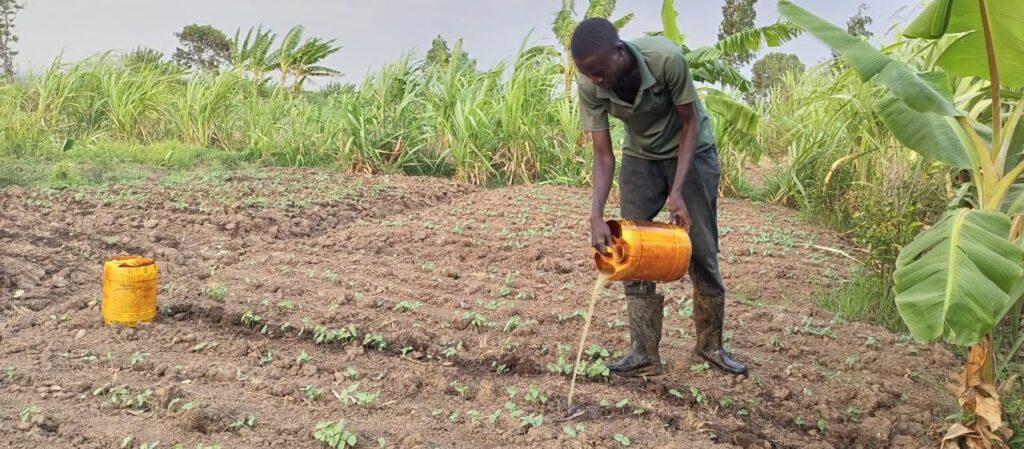
How to acquire the worms
Odhiambo noted that the group only uses two per cent of chemicals in their trade, to handle other critical cases which cannot be solved organically.
“This farming is low cost. This is a huge motivation to our farmers, and many of them are embracing this practice,” he adds.
According to Ms Adoyo, the farmers can get wild earthworms from the swamps along their farms.
Once introduced into the wastes, they multiply, and farmers are able to share with colleagues at no cost.
Some farmers have also cultured, and multiplied the worms, and they sell at between Sh1, 500 to Sh2, 000 per kilo.
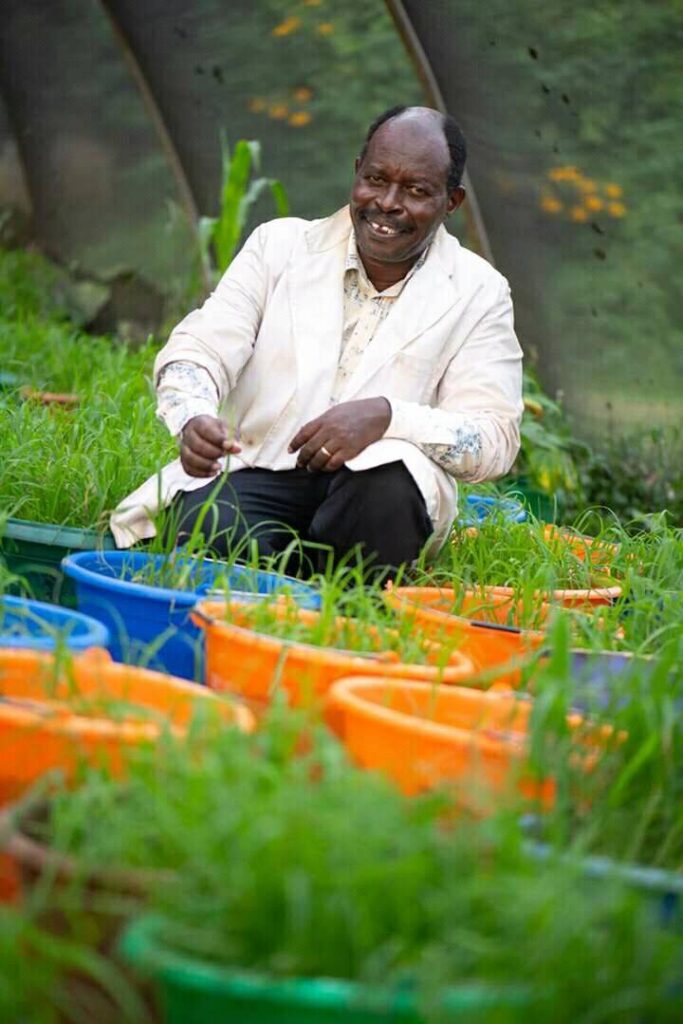
What experts say
Prof Mathews Dida, an associate professor in the Department of Agriculture at Maseno University says organic wastes require the right environment to enhance decomposition.
According to the Crop Genetics expert, use of earthworms is one of the ways of enhancing decomposition, and improving the quality of manure.
Most of the inorganic fertilizers used in the agricultural production are acidic. When used for a long time, the soil become so acidic that it cannot support the life of crops. To recover such soil, liming has to be done to reduce the acidity,
Prof Dida
“Apart from decomposition, the worms increase aeration, and mixture of the manure,” he said.
Prof Dida noted that continuous use of inorganic farm inputs lead to degradation of agricultural land.
“Most of the inorganic fertilizers used in the agricultural production are acidic. When used for a long time, the soil become so acidic that it cannot support the life of crops. To recover such soil, liming has to be done to reduce the acidity,” he said.
He noted that Diamonium Phosphate (DAP) fertilizer, as well as Urea have been proven to be more acidic.
“Such fertilizers would not be recommended for red soil in these areas,” he said.
He said the initiative by these farmers is the best practice, as leafy organic waste, and animal waste make the best manure.
